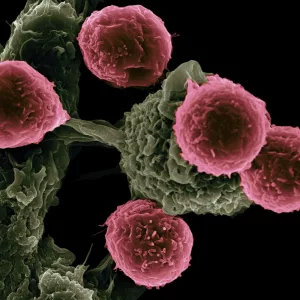
What Is Cancer? Did you know what are the Cancer Signs? Although doctors know what makes you more likely to get cancer, most cancers happen to people who have no known risk factors.
As human cells age or become damaged, they naturally die and are replaced by newer, healthier cells. At other times, however, this normally ordered process is disrupted, allowing damaged or abnormal cells to multiply when they shouldn’t.
Cancer is a disease caused by the growth of abnormal cells that grow out of control and spread to other parts of the body, destroying healthy tissue in the process. As there are millions of cells that make up the human body, cancer can occur practically anywhere.
Cancer ranks as the world’s second leading cause of death. But advances in cancer screening, treatment and prevention have led to rising survival rates for many types of cancer.
Screening can detect cancers before they show any signs. If you pay close enough attention to your body, you can also learn to recognise early warning signs. It seems that many people do not pay as much attention to the warning signs as they should.
Often, these people don’t give much thought to the possibility of cancer when they experience aches, pains and other minor health problems. Here we take a look at the 7 cancer signs that women ignore.
7 Cancer Signs That You Might Have But You Were Ignoring
1. Skin changes
A mole or birthmark that has changed in appearance could be a sign of skin cancer. Check your skin carefully if you do a lot of outdoor activities. Here are some of the changes that cancer causes:
- Redness
- Dark spots or hyperpigmentation
- Accelerated hair growth
- Changes in skin and eye colour (jaundice)
While not all changes necessarily indicate cancer, it is still important to discuss any new or changed markings with your doctor.
2. Persistent cough or sore throat
Lung cancer may be indicated by a cough that lasts more than two weeks, especially if it is dry. A cough rarely indicates cancer. However, if you have a symptom that persists or is otherwise unusual, don’t hesitate to see your doctor.
3. Changes in toilet habits
Bowel, prostate and bladder cancers, among others, can cause noticeable changes in bodily functions. Symptoms include changes in bowel habits that last for a while, such as persistent constipation or diarrhoea, blood in the stools, black or tarry stools, increased urination, or blood in the urine. Although your symptoms may suggest an infection, you should still discuss them with your doctor to rule out bladder, kidney or prostate cancer.
4. Unusual lumps
If you have a cold, your lymph nodes may swell. But persistently enlarged lymph nodes in the neck, groyne or armpits without other symptoms of infection could be lymphoma. And a lump in the breast is a common sign of breast cancers. It’s important to check any new lumps or masses that don’t go away.
5. Unexpected bleeding
Blood in your cough may indicate lung cancer, while blood in your urine may indicate kidney, bladder or bowel cancer. Vaginal bleeding outside the normal menstrual cycle can be an early indicator of cervical cancer, while bleeding from the rectum can be a sign of bowel cancer. Tumours can cause bleeding by pressing on nearby blood vessels or by damaging the lining of the lungs. Please get this looked at as soon as possible.
6. Unexplained tiredness and pain
Cancers can cause fatigue, which is a common symptoms. People with cancer often feel tired even after getting plenty of rest. However, in some cases, cancer can spread to other organs and become painful. Period cramps and irregular cycles are common experiences for most women. But persistent pain or changes in your cycle over a long period of time can be a sign of cervical, womb or ovarian cancer.
7. Rapid weight loss
We can lose some weight naturally, but rapid weight loss when you’re not even trying to lose weight, or a decreased appetite, can be a sign of many different types of cancer, especially those that have spread. It is a common symptom of pancreatic, stomach, lung and esophageal cancer.
Cancers in each individual is caused by a different set of genetic changes. More changes are made as the cancer develops. It is possible for multiple mutations to occur in a single tumour, even in neighbouring cells.
Cells with damaged DNA are normally eliminated by the body before they can become cancerous. But as we get older, our bodies become less able to do this. This contributes to the increased risk of developing cancer in old age.
Talk to your doctor if you’re worried about your cancer risk, even if you don’t have any symptoms. Ask about the tests and procedures that can help you detect cancer.
Disclaimer: This is for informational purposes only.
Did you find this helpful? Let us know in the comments.
Source: UCSF Health
You can also visit our Facebook and YouTube pages to know more about plants and their health benefits.
You might also like:
- How To Prevent Cancer With The Help Of These 6 Foods?
- Here Are The 5 Health Benefits Of Dandelion You Should Know!
- The Interesting Health Benefits of Crimson Ipomoea
- The 8 Health Benefits Of Custard Apple That Might Surprise You
- 6 Remarkable Medicinal Benefits Of Turmeric And How To Treat Urinary Illness With This








